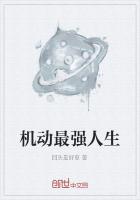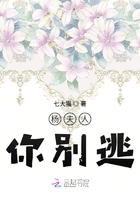我们小小的组织从一开始就得到了挪威的支持,后来得到瑞典的支持。而如果没有了这种支持,我们的书源就会枯竭。我们把津巴布韦出版的长篇小说,还有实用性的书籍,寄给那些渴望得到书籍的人们手中。?
Our little organisation was supported from the very start by Norway, and then by Sweden. But without this kind of support our supplies of books would have dried up. Novels published in Zimbabwe, and, too, do-it-yourself books are sent out to people who thirst for them.
据说,一个民族应该得到其应该得到的政府,但是我认为津巴布韦的情况并非如此。我们必须记住,这种对书籍的敬重之情,对书籍的渴望之情,并非始于穆加贝的统治,而是在此之前,白人统治时期。这是一种令人震惊的现象,这种对书籍的渴望之情,这种现象,从肯尼亚到好望角,随处可见。?
It is said that a people gets the government it deserves, but I do not think it is true of Zimbabwe. And we must remember that this respect and hunger for books comes, not from Mugabe’s regime, but from the one before it, the whites. It is an astonishing phenomenon, this hunger for books, and it can be seen everywhere from Kenya down to the Cape of Good Hope.
这使人联想到一个事实,尽管是不大可能的:我实际上是在泥棚房或者茅草屋里长大的。这种房子总是到处都有,只要那里有芦苇或茅草,适当的泥巴和砌墙用的杆子。比如说英国的萨克逊人。我长大的那座房子有四间房子,一间挨着一间,而不是一整间房子,问题是,这座房子里充满了书籍。我父母不仅把书籍从英国带到了非洲,而且我母亲还从英国给她的孩子们订购书籍,那些用牛皮纸包裹的一包包书籍曾是我童年生活的乐趣。一座泥棚房,但是充满了书。?
This links up improbably with a fact: I was brought up in what was virtually a mud hut, thatched. This house has been built always, everywhere, where there are reeds or grass, suitable mud, poles for walls. Saxon England for example. The one I was brought up in had four rooms, one beside another, not one, and, the point is, it was full of books. Not only did my parents take books from England to Africa, but my mother ordered books from England for her children, books in great brown paper parcels which were the joy of my young life. A mud hut, but full of books.
有时候,我会收到住在一个村子里的人们写来的信,那个村子可能没有电,没有自来水(就像我们一家人住在我们那宽大的泥棚房里一样),信里写道:“我也要当一个作家,因为我住的房子和您过去住的房子一模一样。”?
And sometimes I get letters from people living in a village that might not have electricity or running water (just like our family in our elongated mud hut), “I shall be a writer too, because I’ve the same kind of house you were in.”
然而这里面有困难。不。
But here is the difficulty. No.
没有书籍的房子里是出不了作品,也出不了作家的。?
Writing, writers, do not come out of houses without books.
这里面有差距。有困难啊。?
There is the gap. There is the difficulty.
我在看最近几年获得诺贝尔文学奖的作家的演讲。以成就辉煌的帕慕克为例。他说,他父亲有1500册书。他的才能并非空穴来风,他和伟大的传统有着千丝万缕的联系。?
I have been looking at the speeches by some of your recent prizewinners. Take the magnificent Pamuk. He said his father had 1,500 books. His talent did not come out of the air, he was connected with the great tradition.
再以V.S.奈保尔为例。他提到,他的家族都对印度的吠陀经记忆犹新。他父亲曾鼓励他写作。当他到了英国,他合理地利用了大英博物馆。所以他紧紧贴近这一伟大的传统。?
Take V.S. Naipaul. He mentions that the Indian Vedas were close behind the memory of his family. His father encouraged him to write. And when he got to England by right he used the British Library. So he was close to the great tradition.
让我们再以约翰·库切为例。他不仅是紧紧贴近这一伟大的传统,他就是这个传统:他曾在开普敦教授文学。多么遗憾啊,我从来没有上过他的课,让那个美妙而勇敢的、大胆的大脑教教我。?
Let us take John Coetzee. He was not only close to the great tradition, he was the tradition: he taught literature in Cape Town. And how sorry I am that I was never in one of his classes: taught by that wonderfully brave bold mind.
要写作,要创作文学,就必须和图书馆、书籍、那个传统有密切的联系。?
In order to write, in order to make literature, there must be a close connection with libraries, books, the Tradition.
我有一个津巴布韦的朋友。一个作家。黑人——这就说到点子上了。他靠阅读果酱瓶上的标签、水果罐头上的标签自学了阅读。他在一片我曾经开车经过的地区长大,这是一个农村黑人聚居的地区。土壤是粗砂和砾石,只是稀稀疏疏地长着些灌木丛。那些小屋是贫穷的,一点儿都不像有钱人家那些收拾得干干净净的小屋。一所学校——但是就像我描述过的那所学校一样。他在一个垃圾堆上发现一本别人扔掉的儿童百科全书,并从中学习。?
I have a friend from Zimbabwe. A writer. Black—and that is to the point. He taught himself to read from the labels on jam jars, the labels on preserved fruit cans. He was brought up in an area I have driven through, an area for rural blacks. The earth is grit and gravel, there are low sparse bushes. The huts are poor, nothing like the good cared-for huts of the better off. A school—but like one I have described. He found a discarded children’s encyclopaedia on a rubbish heap and learned from it.
津巴布韦于1980年独立,曾经有过一群很好的作家,真正是一窝歌唱的鸟儿。他们是在以前的南罗得西亚,在白人统治下培养出来的——他们上教会学校,更好的学校。津巴布韦现在是培养不出作家的,至少在穆加贝的统治下是这样的。?
On Independence in 1980 there was a group of good writers in Zimbabwe, truly a nest of singing birds. They were bred in old Southern Rhodesia, under the whites—the mission schools, the better schools. Writers are not made in Zimbabwe. Not easily, not under Mugabe.
所有的作家别说是当上作家,在识字的道路上都困难重重。我要说,印在果酱瓶上的字和别人扔掉的百科全书并不稀奇。我们在谈论人们渴望标准的教育,他们离这个标准还有很长的距离。一间小屋或里面有许多孩子的几间小屋——一个劳累过度的母亲,为吃为穿而苦苦挣扎。?
All the writers had a difficult road to literacy, let alone being writers. I would say print on jam tins and discarded encyclopaedias were not uncommon. And we are talking about people hungering for standards of education they were a long way from. A hut or huts with many children—an overworked mother, a fight for food and clothing.
然而,尽管有这些困难,作家们还是诞生了,另外有一件事我们应该牢记在心。这是津巴布韦,实际上在不到一百年前被征服过。这些人的祖父祖母可能曾经是他们氏族的讲故事能手。口头文学的传统,经历了一代人或两代人,那些记住的故事传承下来,从口头过渡到印刷出来,印成了书。这是多么大的成就啊。?
Yet despite these difficulties, writers came into being, and there is another thing we should remember. This was Zimbabwe, physically conquered less than a hundred years before. The grandfathers and grandmothers of these people might have been storytellers for their clan. The oral tradition. In one generation—two, the transition from stories remembered and passed on, to print, to books. What an achievement.
书籍,根本就是从垃圾堆和白人圈子风化的沙砾堆上捡来的。不过你可能有一捆稿纸(不是打字稿)——那是一部书稿——可是得找到一个出版商,出版商会向你支付稿酬,并有支付能力,而且发行书籍。我有好几个别人给我寄来的材料,讲到非洲的出版界。即使在像北非那些比较优越的地方,有着不同的传统,谈论出版界也只是一个可能性的梦想。?
Books, literally wrested from rubbish heaps and the detritus of the white man’s world. But you may have a sheaf of paper (not typescript)—that is a book—but it has to find a publisher, who will then pay you, remain solvent, distribute the books. I have had several accounts sent to me of the publishing scene for Africa. Even in more privileged places like North Africa, with its different tradition, to talk of a publishing scene is a dream of possibilities.
我在这里谈论的是从来没有写出来的书,谈论的是那些写不出书来的作家们,因为出版商们不在那里。他们的声音没有人听得到。要估算这才能、这潜力的巨大浪费是不可能的。但是,即便在一本书创作出来之前的阶段,也需要有出版商,需要有预付款,需要有人鼓励,还有别的东西是缺失的。?















